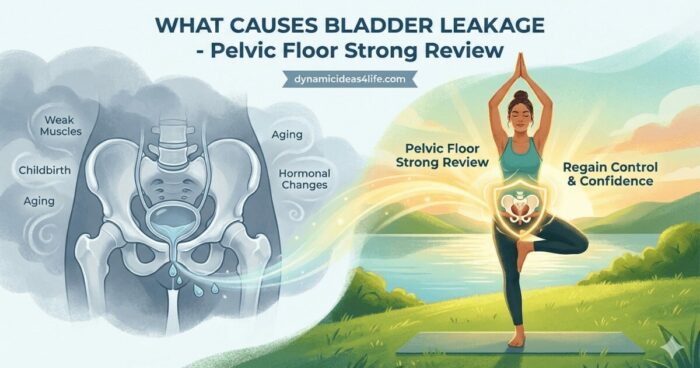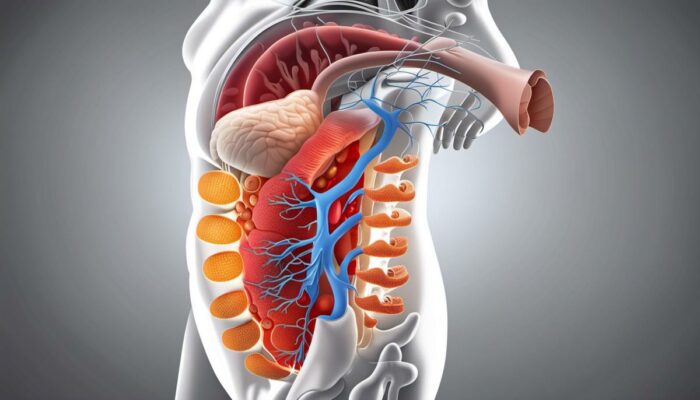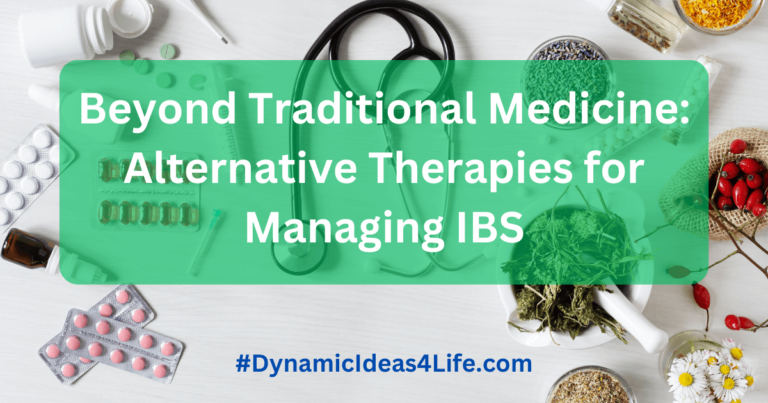
Within the complex tapestry of human health, there exists an array of conditions that require more than conventional medicine for effective management. Inflammatory bowel disease (IBD) is one such condition, characterised by chronic inflammation of the digestive tract, manifesting in forms like Crohn’s disease and Ulcerative Colitis.
As we peel back the intricacies of IBD, it becomes evident that while modern medicine provides notable relief, harnessing the power of nature through dietary changes and lifestyle modifications can complement treatment, alleviate symptoms, and enhance quality of life.
This engagement with natural remedies should not eclipse conventional medicine, rather, it should exist alongside for optimal healing, shaped by the understanding that every individual experience with IBD is unique, necessitating personalised approaches.
Understanding Inflammatory Bowel Disease (IBD)
Inflammatory Bowel Disease (IBD) Overview
Inflammatory Bowel Disease, often abbreviated as IBD, is an umbrella term used to describe chronic conditions involving inflammation of the gut or gastrointestinal tract. The two most common types of IBD are Crohn’s disease and Ulcerative Colitis.
Crohn’s disease can affect any part of the digestive tract, from the mouth to the anus, while Ulcerative Colitis primarily impacts the large intestine and rectum. Both conditions involve a series of unpleasant symptoms, including persistent diarrhoea, abdominal pain, and weight loss.
Small lesions or ulcers, similar to those that might occur in the mouth, can form in the layers of the lining of the gut. Notably, individuals suffering from IBD can also experience periods of remission where they have few to no symptoms.
Understanding the Causes of IBD
The exact cause of Inflammatory Bowel Disease is not entirely understood. However, scientists believe that IBD results from a combination of factors including genetic predisposition, environmental influences, and an abnormal response of the immune system.
It’s believed that in people with IBD, the immune system mistakenly attacks the cells in the digestive tract, causing inflammation.
IBD Risk Factors
Certain factors may increase the risk of developing IBD. These include age – IBD is usually diagnosed before the age of 30, but it can occur at any age. Family history also plays a part; individuals with a close relative, such as a parent, sibling or child with the disease, may be more likely to develop IBD.
Additionally, environmental factors like a high-fat diet or cigarette smoking can increase the risk.
Conventional Treatments for IBD
Typically, treatment for IBD aims to reduce inflammation in the gut, relieve symptoms, and prevent flare-ups during periods of remission. This is often achieved with medication such as anti-inflammatory drugs and immunosuppressants.
In severe cases, surgery to remove damaged sections of the digestive system might be necessary.
Exploring Natural Remedies for Inflammatory Bowel Disease
In gaining an understanding of IBD and the usual methods of treatment, we can become more aware of the potential benefits of natural remedies. Often, these alternatives centre around adapting our diet, as certain foods may either soothe or worsen IBD symptoms.
For example, a low-residue diet that minimises high-fibre foods could relieve abdominal discomfort and diarrhoea during flare-ups.
Suggestions have been made that probiotics, which are helpful bacteria and yeasts, could assist in stabilising the balance in our gut microbiota, thus possibly easing IBD symptoms.
Likewise, research has shown that omega-3 fatty acids, found readily in fish oil, may have the potential to decrease inflammation in individuals with IBD.
Herbal remedies are also commonplace, with a focus on botanical treatments such as aloe vera and turmeric. As these are known for their anti-inflammatory properties, they may help alleviate symptoms of IBD. Turmeric, particularly, contains curcumin, which is a compound known for its inflammation-reducing abilities.
However, these methods should not be implemented without the guidance of a healthcare professional. They could, unintentionally, obstruct prescription medications and should be utilised as a supplement to the individual’s overall IBD regimen.
Therefore, it is of utmost importance to consult a medical professional prior to experimenting with any new natural treatments for IBD. This approach allows these therapies to be safely integrated into the individual’s current treatment plan, avoiding potential complications and improving their effectiveness.
Exploring Natural Dietary Options
The Role of Diet in Managing IBD
Dietary choices play a significant role in the management of Inflammatory Bowel Disease (IBD). A variety of foods and dietary structures can influence inflammation in the digestive system, either alleviating or aggravating symptoms of IBD.
Incorporating nutritional changes can enhance comprehensive IBD treatment, providing a natural complement to conventional medicinal therapy.
Specific Foods and IBD
Numerous studies suggest that certain foods can aid in reducing inflammation and controlling IBD symptoms. Fruits and vegetables, rich in antioxidants, may help combat inflammation. Omega-3 fatty acids, commonly found in fish like salmon and mackerel, can also potentially reduce inflammation.
Though there are no rigid dietary rules applicable to every IBD patient, it’s generally advised to avoid processed food, alcohol, caffeine and other potential triggers that can exacerbate symptoms.
In some acute IBD flare-ups, low residue or low fibre diets may be recommended to decrease the frequency of bowel movements and alleviate symptoms. However, these diets ought to be followed under proper supervision to ensure the delivery of essential nutrients.
Dietary Supplements and IBD
The role of dietary supplements in managing IBD can be prominent but must be taken under the guidance of a healthcare professional. Probiotics, touted as ‘good bacteria’, assist in maintaining gut health by restoring the natural balance of bacteria in the gut.
Regular use of Omega-3 supplements may also provide relief from inflammation.
Vitamin D and calcium supplements can counteract the potential bone-thinning effects of some IBD medications. Iron and B vitamin supplements can help manage anaemia, a common IBD complication.
Holistic Dietary Plans and IBD
Holistic diet plans, such as the Mediterranean diet or the anti-inflammatory diet, focus on a balanced intake of fruits, vegetables, lean proteins, and healthy fats, potentially influencing the course of IBD. The Mediterranean diet is high in fibre, antioxidants, and other anti-inflammatory compounds, which can soothe IBD symptoms.
The Specific Carbohydrate Diet (SCD) and the Low FODMAP diet are other plans adopted by some IBD patients; though more scientific evidence is required to fully authenticate their influence on IBD.
Scientific Evidence
Although individual dietary interventions can produce varied results in different IBD patients, a growing body of scientific research supports the importance of diet in managing IBD. These studies establish diet as an adjunct therapy, reinforcing the significance of personalised dietary planning for IBD patients.
It’s crucial to remember that while dietary management plays a vital role in relieving symptoms and promoting gut health, it may not replace medication or other medically advised treatments for IBD.
Involving a registered dietitian in your care team can guide you to optimize your diet and assist you in managing your condition more effectively.
While this guide aims to inform on natural remedies for IBD, please consult with a healthcare professional for personalised advice. It’s worth noting that while diet on its own may not necessarily ‘cure’ IBD, appropriate dietary changes can offer better management of symptoms. In some instances, these alterations could instigate lengthier remission periods.

Lifestyle Changes to Manage IBD
IBD and the Importance of Stress Management
Effective stress management plays a crucial role when contending with inflammatory bowel disease (IBD). Any form of stress can spark off IBD symptoms by adversely affecting the immune system, which then stimulates inflammation in the gut.
Recognising potential stressors and learning how to handle them effectively can make a significant difference. Coping mechanisms may include cognitive-behavioural therapy, practising deep breathing exercises or simply discussing the issues with a supportive friend or family member.
The Importance of Sleep
Getting enough quality sleep is also essential for managing IBD. People with this condition often struggle with sleep due to abdominal pain, frequent trips to the bathroom, or side effects of medications. The lack of sleep can adversely affect the immune system and lead to more inflammation.
Implementing good sleep hygiene practices, such as setting regular sleep and waking times, reducing exposure to electronic devices before sleep, and making the bedroom a comfortable, dark and quiet space, can help improve sleep quality.
Regular Physical Activity
Regular exercise is another important lifestyle change that can benefit individuals with IBD. Regular exercise can improve sleep, reduce stress and improve mood, which can, in turn, help manage IBD symptoms.
However, during an IBD flare-up, high-intensity exercise might exacerbate symptoms, so it’s vital to listen to your body and adjust the exercise intensity accordingly.
Avoiding IBD Triggers
Each person with IBD can have different triggers that lead to flare-ups. It could be certain types of foods, missed meals, inadequate hydration, or even stress and anxiety. Identifying these triggers and avoiding them can go a long way in managing the disease.
Complementary and Alternative Therapies
Some individuals with IBD find relief in complementary and alternative therapies. This might include therapies like acupuncture, which may help reduce inflammation and alleviate pain, or mind-body therapies such as meditation and yoga, which can help manage stress and improve well-being.
Herbal Therapies
Herbal therapies may provide natural relief from IBD symptoms. Some examples include aloe vera, which may help soothe the digestive tract, or turmeric, which has anti-inflammatory properties.
However, it’s important to note that while these therapies may support the management of IBD symptoms, they should not replace traditional medical therapies. Before initiating any herbal therapies, it is essential to consult with a healthcare provider to avoid potential herb-drug interactions or side effects.
Combatting IBD Encompasses More than Diet and Medication
Besides frequent consultations with healthcare professionals, dealing with Inflammatory Bowel Disease (IBD) also necessitates stress management, enhancing sleep quality, regular physical activity, and the potential inclusion of alternative therapies. Implementing these changes in lifestyle can significantly improve the quality of life for individuals with IBD.

Precautions and Considerations
Considerations regarding Natural Remedies for IBD
When pondering about natural remedies for IBD, it’s crucial to bear in mind that they could potentially interfere with orthodox treatments. Certain natural therapies could diminish the efficacy of prescribed medication or intensify their side effects.
For example, herbal products such as garlic, ginkgo and St. John’s Wort, could heighten the risk of bleeding when mixed with drugs, like warfarin.
Furthermore, certain supplements, like omega-3 fatty acids, could have the effect of thinning the blood. As such, individuals with IBD who are on antiplatelet or anticoagulant medications need to exercise caution.
Some natural remedies could also interfere with immunosuppressants that are typically used in treating IBD, potentially worsening the condition instead of enhancing it.
Importance of professional health consultation
Before integrating any natural remedies into an existing treatment plan, it’s crucial to consult a healthcare professional. Doctors and pharmacists have a deep understanding of how various substances interact and can offer personalized, informed advice. This is particularly important for individuals who are already undergoing treatments for IBD or other underlying health conditions.
It is also important to keep in mind that not all natural or herbal remedies are safe for everyone. This is particularly true for most over-the-counter supplements which are not subject to rigorous regulatory oversight. Therefore, even if they’re derived from natural sources, they could contain potentially harmful substances.
Lifestyle and dietary changes
When it comes to dietary changes, sudden drastic alterations can lead to unintended consequences. A common strategy employed by IBD sufferers is the elimination diet, where certain food groups are eliminated from the diet to identify potential triggers. While this approach can be beneficial, it needs to be done under the guidance of a qualified dietitian to ensure nutritional needs continue to be met.
Hydration is also crucial in managing IBD successfully, as diarrhoea often associated with the condition may cause dehydration. Equally important is maintaining a regular exercise routine.
Though rigorous activity could potentially trigger symptoms, regular, moderate-intensity workouts can enhance overall well-being and help manage IBD symptoms.
The holistic approach
Managing IBD often requires a holistic approach that meshes conventional treatments with the supervised use of natural remedies, lifestyle changes, and stress management techniques.
Techniques like yoga, meditation, and psychotherapy can be helpful in managing the psychological stress that often accompanies chronic diseases like IBD.
However, even with the most well-intentioned holistic approaches, it is vital to remember that IBD is a complex condition. What works for one individual may not necessarily work for another.
Therefore, any changes to your treatment or lifestyle should be undertaken following professional advice.

In Conclusion
Whilst navigating the universe of natural remedies for IBD, it becomes evident that the aforementioned interventions can facilitate a holistic, multi-faceted approach towards managing this chronic condition. Incorporating dietary modifications, practising stress relief techniques, making considered lifestyle changes, and utilising complementary therapies, whilst keeping in mind the necessity of professional consultation and caution, can indeed create a positive, tangible impact.
It is not about replacing conventional treatment, but rather about supporting and supplementing it. Just like a crisp, clear lens helps see the world in a better light, enriching our understanding of IBD with these natural remedies equips us with the tools to better manage, live with and overcome the challenges posed by this condition. I will end this article here but if you are interested in exploring more different avenues for IBD>>
>>Check Out Our Other Posts About IBS and IBD Relief HERE<<<






Anxiety and Depression BiOptimizers blood pressure supplements blood sugar control blood sugar support supplements cognitive function digestive enzymes digital products Dr Sam Robbins Exercise Gut Health Gut Health While Travelling Health Tips for Travelling Healthy Living heart health HFL how to lower blood sugar levels How To Lower Cholesterol insulin resistance joint health supplement keto dieting Keto Diet Weight Loss leaky gut supplements list Magnesium deficiency Matt Gallant mental health multivitamins Nootopia Nootropics Probiotics Probiotic Supplements proteolytic enzymes reverse type 2 diabetes stress and anxiety stress relief Supplements vitabalance vitapost Wade Lightheart weight loss articles weight loss diet plans weight loss product reviews weight loss supplements weight loss tea




